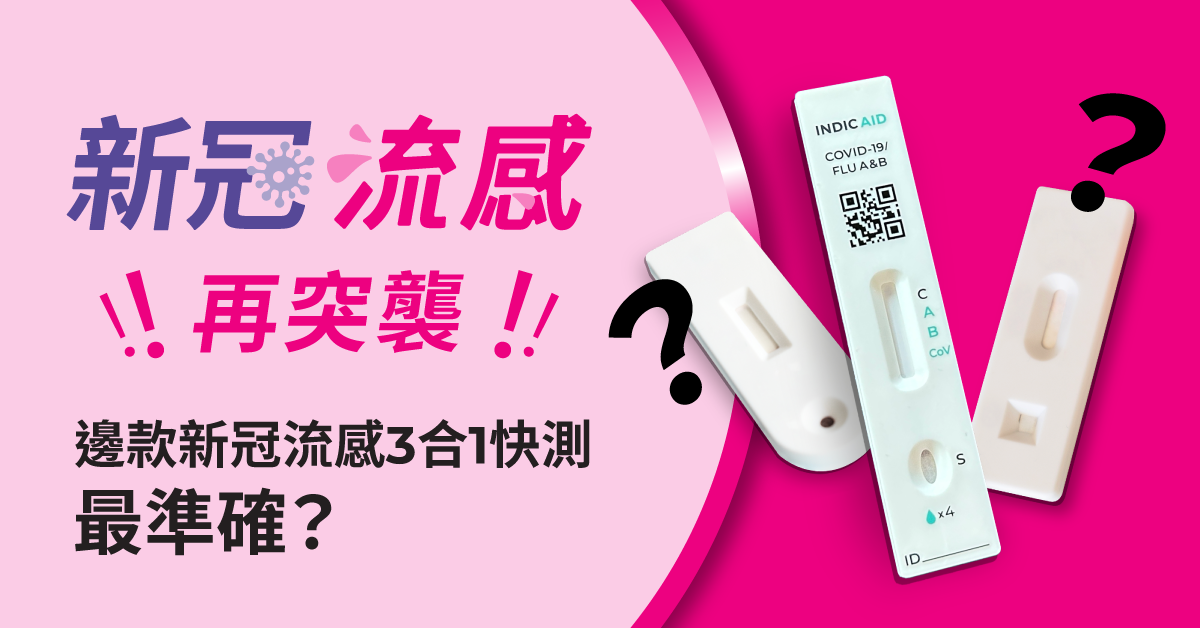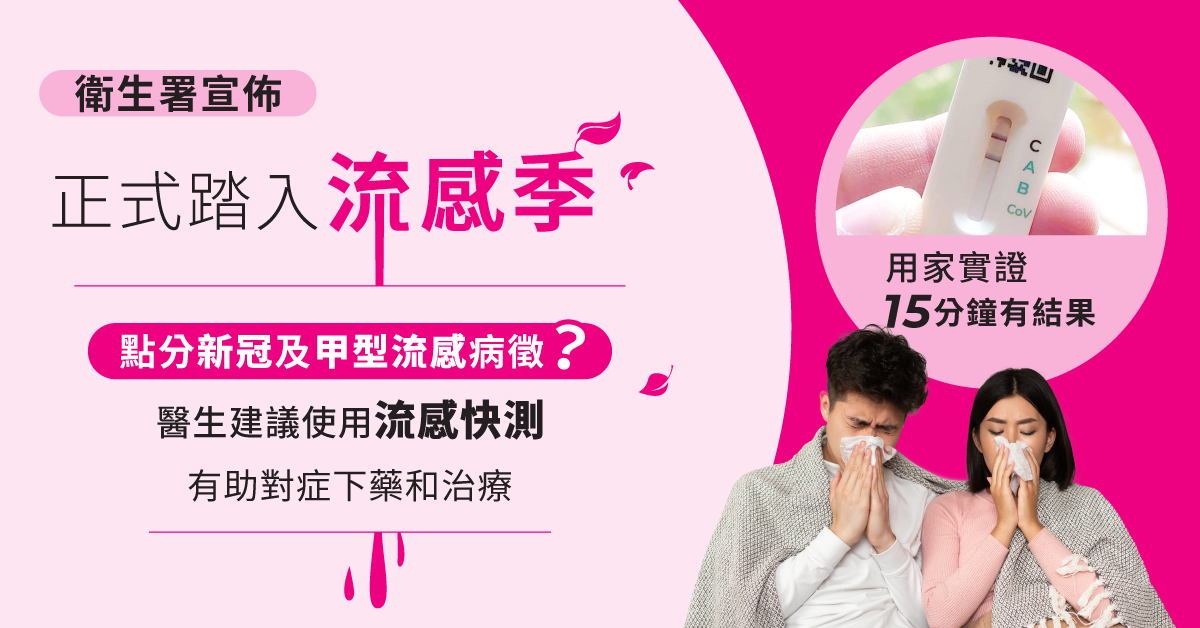【流感Q&A】流感5大注意事項 即睇病徵&治療方法
2022-11-24

雖然過去兩年本港流感確診數字比以往低,不過近月在歐美多國已錄得破紀錄的流感感染及重症個案,更大機會出現併發症甚至死亡;隨著各國通關不少港人計劃外遊,感染流感風險大增,實在不容忽視。不知大家對流感又有多了解?
1. 甚麼是流感?
流行性感冒(流感)是由流感病毒引起的急性傳染病,每年的流感高峰期均會於世界各地傳播並造成重症及死亡個案。經人類傳播的流感病毒一般分為甲型、乙型和丙型三類。甲型及乙型流感佔感染個案的大多數,並且與流感疫情爆發有關。
2. 季節性流感和流感大流行有甚麼分別?
季節性流感主要是由流感病毒的「抗原漂移」引起。流感病毒基因變異會改變病毒表面的蛋白質(抗原),以致身體免疫系統未能識別新病毒及預防其引發的疾病,因而造成部份人的多次流感感染,亦是每年需要重新檢視及接種流感疫苗的主因之一。
流感大流行則是因流感病毒的「抗原轉移」而起。病毒會產生新的病毒蛋白並感染人類,由於人類對這種新型的病毒欠缺免疫力,使新病毒比季節性流感更有效地人傳人。流感大流行較季節性流感少發生,過去每隔約10-50年出現一次。
3. 流感有甚麼特徵?
病徵
常見徵狀包括發燒、全身乏力、咳嗽、喉嚨痛、頭痛、流鼻水或鼻塞、呼吸急促、肌肉痛、肚瀉、嘔吐等
併發症
免疫力較低人士有機會出現細菌性肺炎、中耳炎、鼻竇炎、或慢性疾病惡化如心臟衰竭、哮喘及糖尿病等
傳播途徑
主要透過飛沫或直接接觸患者的分泌物傳播
香港流感高峰期
- 1至4月(冬季)
- 7至8月(夏季)
潛伏期
一般為1至4日
傳染期
- 病發前約1天至病發後5至7天內感染他人
- 幼兒或免疫功能嚴重受損人士的傳染期甚至會更長
4. 最佳的流感治療方法?
- 充足休息和多喝水
- 如果病徵持續或惡化,應立即求診
- 如出現細菌性感染併發症,應按醫生指示服用抗生素
- 流感併發症的高危患者如幼童、50歲或以上及長期病患人士,於48小時內服用醫生處方的抗病毒藥物
注意:抗生素是治療細菌感染而非病毒感染的藥物,服用抗生素不能治癒流感或加快痊癒
5. 如何預防流感?
- 保持良好個人及環境衛生
- 每年於秋季接種流感疫苗,於接種後約兩星期,體內會產生足夠抗體對抗流感病毒
- 出現流感徵狀時使用流感快速測試,盡快確認感染狀況,保障身邊家人、同事及親友



